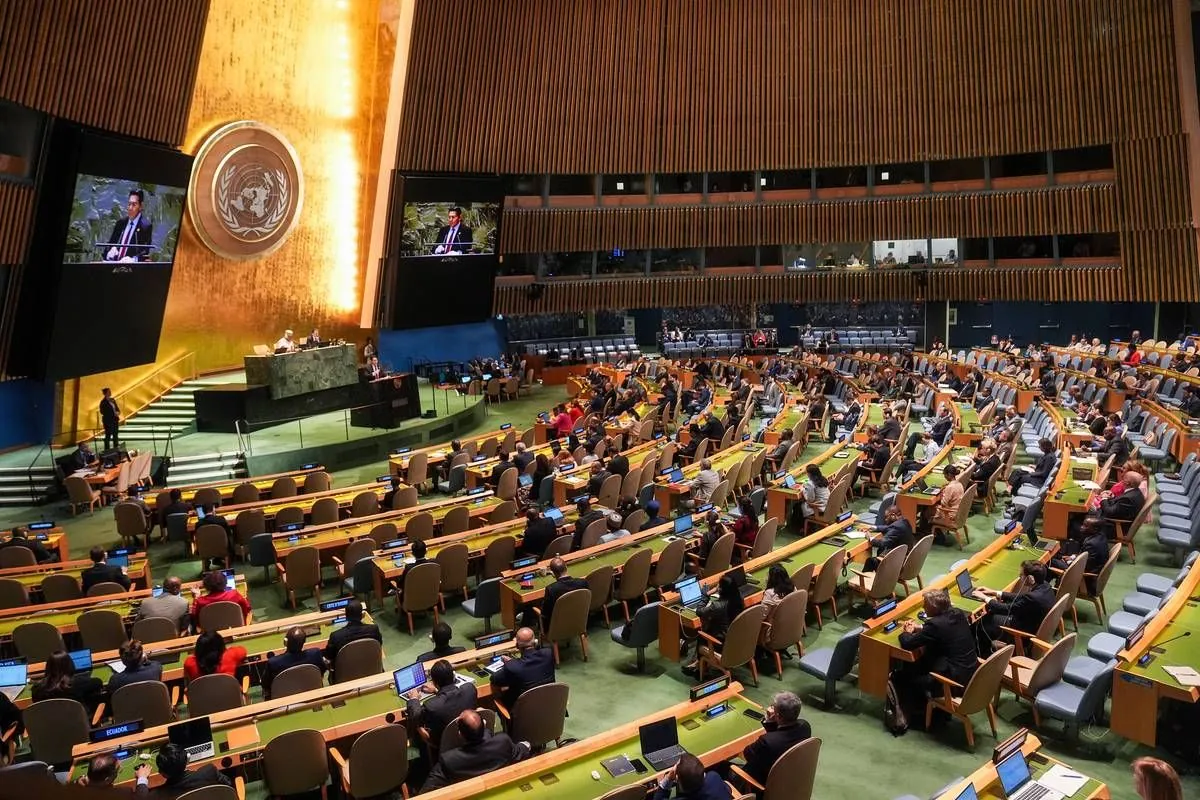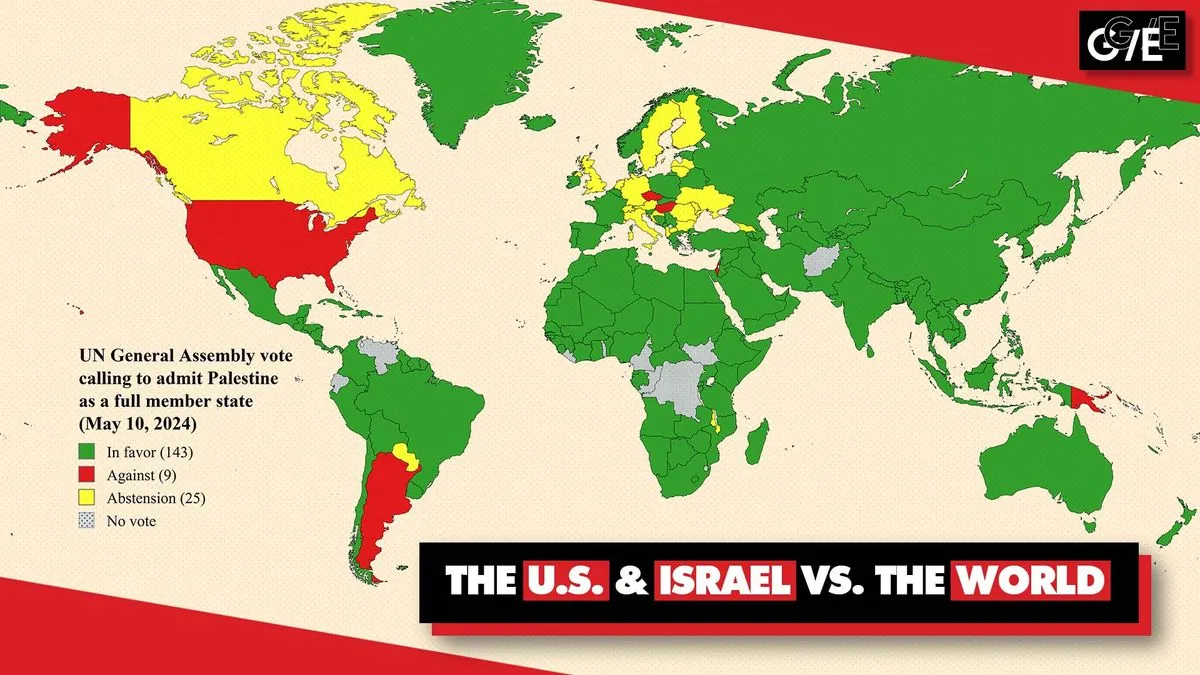UN Assembly Votes for Israeli Withdrawal from Palestinian Territories
UN General Assembly passes resolution demanding Israel end occupation of Palestinian territories within a year. 124 countries support, 14 oppose, including US and Israel, while 43 abstain.

The United Nations General Assembly has taken a significant step in addressing the long-standing Israeli-Palestinian conflict. On September 18, 2024, the assembly voted overwhelmingly in favor of a resolution demanding Israel's withdrawal from occupied Palestinian territories within 12 months.
The resolution, which is non-binding, received support from 124 member states, while 14 countries, including Israel and the United States, opposed it. An additional 43 nations abstained from the vote.

This resolution comes in the wake of an advisory opinion issued by the International Court of Justice (ICJ) in July 2024, which deemed Israel's continued presence in these territories illegal. The ICJ, established in 1945 as the UN's principal judicial organ, plays a crucial role in interpreting international law.
The resolution's demands include:
- Withdrawal of Israeli military forces
- Halting settlement expansion
- Evacuating settlers from occupied lands
- Demolishing parts of the separation barrier in the West Bank
It's worth noting that the West Bank Barrier, often referred to as the "separation wall," began construction in 2002 and has been a source of controversy ever since.
The resolution also calls on member states to:
- Cease arms transfers to Israel if there's reason to believe they might be used in occupied territories
- Impose sanctions on settlers involved in violence against Palestinians
- Hold Israel accountable for violations of international humanitarian law, including paying reparations
Riyad Mansour, the Palestinian envoy to the UN, urged member states to "stand on the right side of history" and support international law and freedom. This appeal reflects the Palestinian territories' observer state status in the UN, granted in 2012.
In contrast, an Israeli Foreign Ministry spokesman described the UN action as "cynical international politics" that could hinder efforts towards a ceasefire and hostage release deal. This statement alludes to the ongoing conflict in Gaza, which escalated following the October 7, 2023 attacks by Hamas on Israel.
Linda Thomas-Greenfield, the U.S. ambassador to the UN, stated that the resolution "does not advance" progress toward a two-state solution and fails to address the current Gaza conflict or the release of hostages held by Hamas. The U.S. has historically used its veto power in the UN Security Council over 80 times, often in relation to resolutions critical of Israel.
It's important to note that Israel considers the territories it captured in 1967 - including East Jerusalem, the West Bank, and Gaza - as disputed rather than occupied land. However, the UN and most of the international community view these areas as occupied territories, a status defined in the Fourth Geneva Convention of 1949.
The voting patterns revealed interesting geopolitical alignments. Several European countries, including Germany, one of Israel's main military backers, abstained. The United Kingdom also abstained, citing a lack of clarity on the shared aim of a negotiated two-state solution. Notably, Ukraine, which has its own case against Russia at the ICJ over the 2022 invasion, also abstained.
Among those voting in favor were France, Spain, and Japan. Many South American nations, some of which have cut diplomatic ties with Israel or recalled their ambassadors over the Gaza war, also supported the resolution.
This vote underscores the complex nature of the Israeli-Palestinian conflict, which has been a focal point of UN efforts since its founding. The UN has passed over 130 resolutions directly critical of Israel's actions, reflecting the international community's ongoing concern about the situation in the region.
As the world watches for the next developments, it remains to be seen how this resolution will impact the peace process and the lives of those in the affected territories.
"Please stand on the right side of history. With international law. With freedom."


































